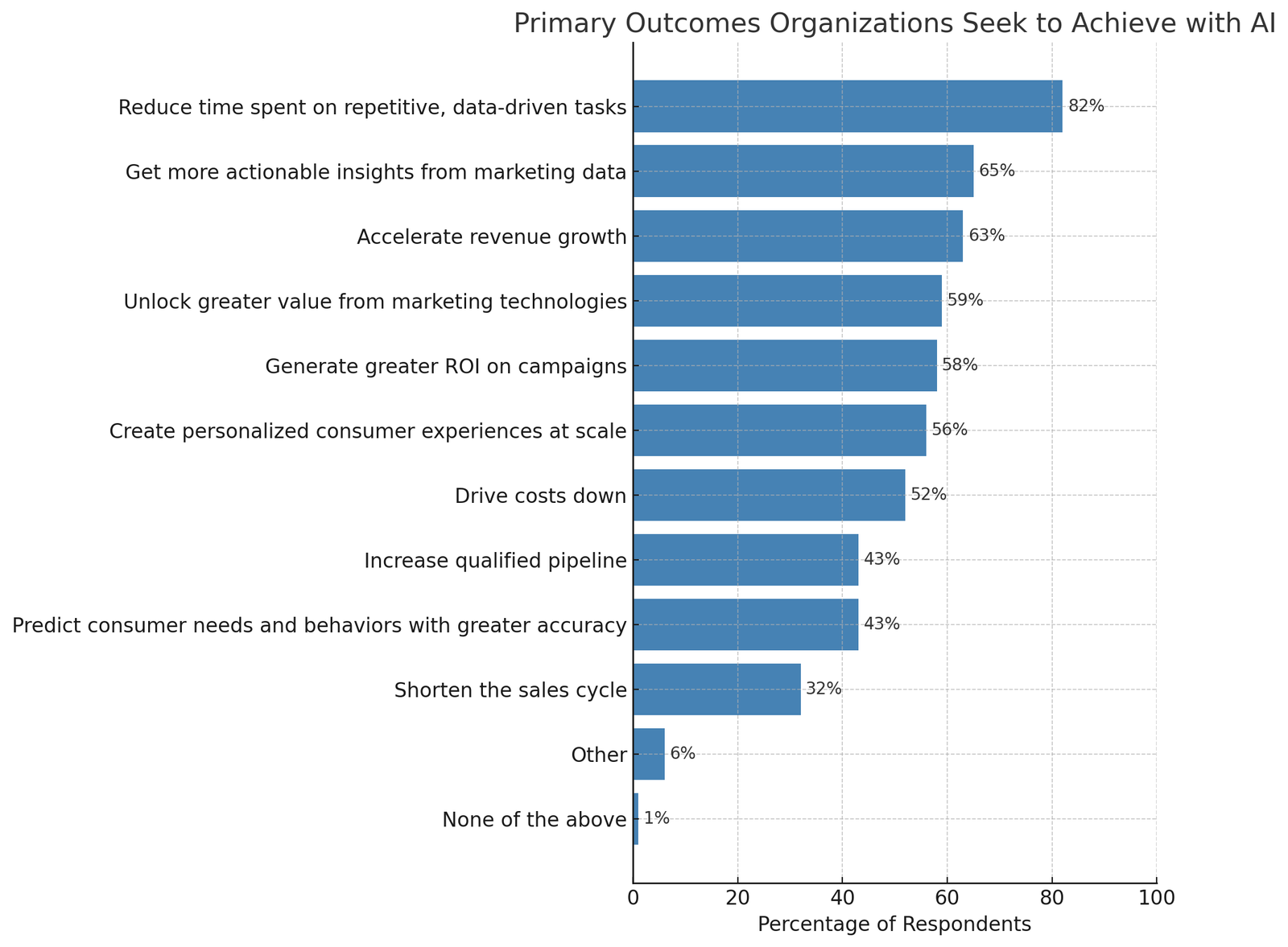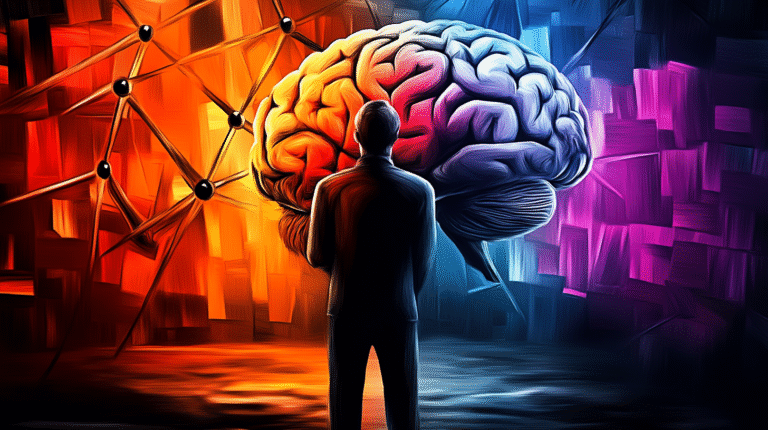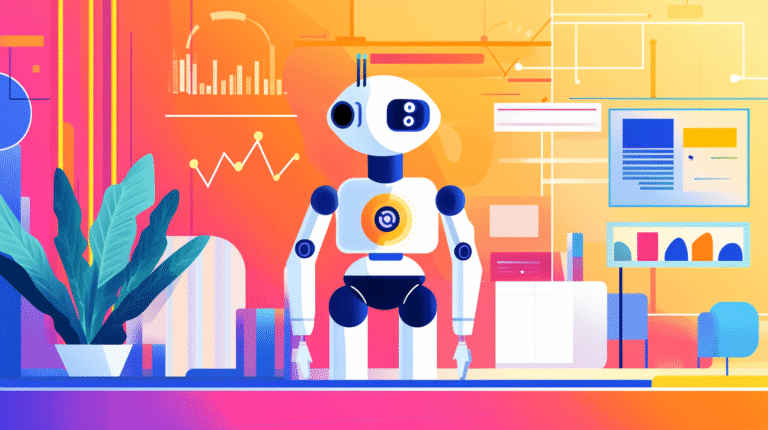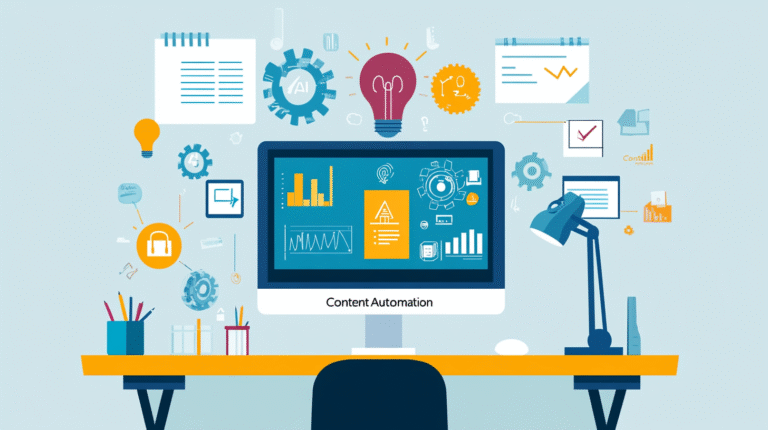The Great AI Job Panic: What the Data Actually Shows
The headlines write themselves: “AI Will Replace Millions of Jobs.” “Marketing Professionals Fear Automation Takeover.” “The Robot Revolution is Coming for Your Career.”
But here’s what’s fascinating about the latest research on AI and jobs: the fear and the reality don’t match up in the way you’d expect.
Yes, 53% of marketing professionals believe more jobs will be eliminated by AI than created over the next three years. That’s a significant jump! 13 percentage points more pessimistic than just two years ago. The collective anxiety is real and growing.
Yet when you dig deeper into the same data, something interesting emerges. When those same professionals think about their own jobs specifically, the fear largely evaporates. Only 21% are somewhat or very concerned about AI’s impact on their personal career. Most (33%) are neutral, seeing both risks and opportunities in equal measure.

This disconnect reveals something important about how we’re processing the AI transformation and why getting the narrative right matters more than we might think.
The Fear vs. Reality Gap
Let’s start with what people are actually afraid of, because understanding the fear helps us address it more effectively. The anxiety isn’t really about AI taking over jobs wholesale, it’s about being left behind while others figure out how to use AI to become dramatically more productive.
This makes perfect sense when you consider what we’re seeing in the real world. Companies using AI strategically are measuring 37% productivity improvements. Individual professionals who’ve learned to work effectively with AI are completing tasks in hours that used to take days. The performance gaps are becoming visible, and that’s creating legitimate concern about professional relevance.
But here’s what the data suggests: the professionals who are least worried about their own jobs are often the ones who’ve started experimenting with AI themselves. They’ve discovered that AI doesn’t eliminate their expertise, it amplifies it.
The marketing professional who learns to use AI for research, content creation, and data analysis doesn’t become obsolete. They become the person who can deliver twice the insight in half the time. The consultant who builds custom AI workflows for their specific domain doesn’t get replaced, they become indispensable to clients who want that level of efficiency.
What Jobs Are Actually Changing
The research points to something more nuanced than simple job elimination. When 79% of marketers say their primary goal with AI is “saving time on repetitive tasks,” they’re describing transformation, not replacement.
Think about what marketing work actually involves. There’s the strategic thinking: understanding customer psychology, developing positioning, creating compelling narratives. Then there’s the execution: researching data, formatting reports, optimizing campaigns, analyzing performance metrics.
AI excels at the execution layer while struggling with the strategic layer. It can process data faster than any human, but it can’t understand why a particular message will resonate with a specific audience in a particular moment. It can generate content at scale, but it can’t develop the creative strategy that makes that content compelling.
This suggests a future where marketing roles evolve rather than disappear. The professionals who understand both the strategic and technical sides (who can think creatively about AI applications while maintaining human judgment about what matters) become more valuable, not less.
The Skills That Matter More Than Ever
What’s particularly telling about the research is where professionals are focusing their AI efforts. Beyond saving time on repetitive tasks, the top goals include creating personalized consumer experiences (56%), driving down costs (52%), and increasing qualified pipeline (43%).

These aren’t the goals of people planning to automate themselves out of jobs. These are the goals of professionals who see AI as a way to deliver higher value to their organizations and clients.
The marketing professional who can use AI to create more personalized customer experiences isn’t competing with AI, they’re collaborating with it to deliver results that neither could achieve alone. The consultant who can use AI to analyze market trends while applying human insight to strategic recommendations becomes more valuable to clients, not less.
This points to a crucial skill shift that smart professionals are already making. Instead of competing with AI on tasks it does well (data processing, pattern recognition, content generation), they’re focusing on distinctly human capabilities that become more valuable when combined with AI: strategic thinking, creative problem-solving, relationship building, and judgment calls that require understanding context and nuance.
Why the Collective Fear Persists
If individual professionals aren’t particularly worried about their own jobs, why is there such widespread concern about AI’s impact on employment generally? The answer reveals something important about how we process technological change.
We tend to overestimate the speed of change and underestimate our ability to adapt. When we think about “jobs in general,” we imagine wholesale replacement happening quickly. When we think about our own work specifically, we recognize the complexity, nuance, and human elements that aren’t easily automated.
Both perspectives contain truth. Yes, some roles will be eliminated as AI handles tasks that were previously done by humans. But the companies seeing the biggest AI productivity gains aren’t firing people, they’re enabling those people to focus on higher-value work.
Klarna’s AI assistant handles two-thirds of their customer service chats, but Klarna is still hiring customer service professionals. The difference is that those professionals now handle the complex, sensitive, or strategic customer interactions while AI manages the routine inquiries.
The Real Risk Isn’t AI. It’s Inaction!
Here’s what the data makes clear: the biggest career risk isn’t that AI will eliminate your job. It’s that you’ll be competing with professionals who’ve learned to work effectively with AI while you haven’t.
The 68% of companies providing no AI training to their employees are creating a two-tier workforce: those who develop AI literacy and those who don’t. The performance gaps between these groups will only widen over time.
This creates both risk and opportunity. The risk is falling behind while others gain AI-enhanced capabilities. The opportunity is that most organizations haven’t figured this out yet, which means early movers have a significant advantage.
The professionals who are learning to prompt effectively, building custom AI workflows for their specific roles, and thinking strategically about human-AI collaboration aren’t just protecting their careers, they’re accelerating them.
Moving From Fear to Strategic Action
The most productive response to AI anxiety is strategic skill development. Instead of worrying about whether AI will impact your industry (it will), focus on how you can use AI to become better at what you do.
Start by identifying the repetitive, time-consuming tasks in your current role. These are prime candidates for AI assistance, and automating them frees up time for higher-value work. Then look for opportunities to use AI to enhance your strategic capabilities: better research, faster analysis, more personalized output.
Most importantly, develop the judgment to know when to use AI and when to rely on human insight. The professionals who thrive in an AI-enhanced world will be those who use it strategically to amplify their uniquely human capabilities.
The great AI job panic will likely be remembered as a moment when we collectively overestimated the risk and underestimated our ability to adapt. The professionals who recognize this early and start building AI literacy now will find themselves well-positioned for whatever comes next.
If you’re ready to move past the fear and start building strategic AI capabilities for your career or organization, let’s talk. The best way to prepare for an AI-enhanced future is to start experimenting with AI-enhanced work today.







